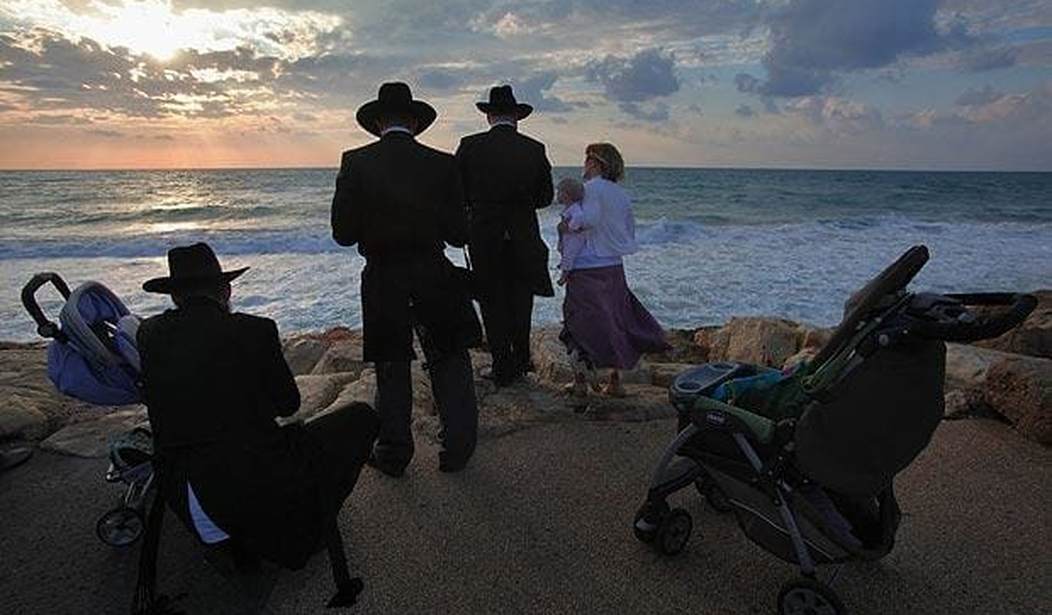At a Toronto mosque, an imam recently prayed that Allah would kill unbelievers “and spare not one of them,” and “purify Al-Aqsa Mosque from the filth of the Jews.”
An ex-Muslim named Sandra Solomon showed up at that mosque Saturday with some requests of her own:
I am standing here in your mosque today, asking for you to show me the tolerance you ask of all Canadians. To accept me for whom I am and the free choices I made to be something other than Muslim.
…
I have concern about my life and I would love to get an answer from you Muslims to tell me: Am I going to be killed, or my child is going to be killed or harmed by anyway for me openly criticizing Islam?
It was a fair question, and a poignant one coming at a time when the Canadian Parliament is considering a motion condemning an undefined “Islamophobia.” While Canada mulls officially designating Muslims as a victim class, Sandra Solomon is worried about being victimized by those supposed victims.
“[A] member of the mosque congregation said to Sandra that she is free to choose her faith emphasizing that her problem is not with Islam but with the Saudi regime.”
This was, unfortunately, not true. We may surmise this from how Islamic tradition records Muhammad himself dealing with criticism.
Abu Afak was a poet who was over one hundred years old, and he had mocked Muhammad in his verses. Muhammad asked the “companions” (sahaba), his closest followers: “Who will avenge me on this scoundrel?” One of the companions murdered Abu Afak in his sleep.
Likewise with another poet who mocked him, Asma bint Marwan. Muhammad cried out: “Will no one rid me of this daughter of Marwan?” One of the companions, Umayr ibn Adi, went to her house that night, where he found her sleeping next to her children. The youngest, a nursing babe, was in her arms. But that didn’t stop Umayr from murdering her and the baby as well.
Muhammad commended him:
You have done a great service to Allah and His Messenger, Umayr! (Ibn Ishaq, 674-676)
Then there was Ka’b bin Al-Ashraf. Muhammad again asked his companions: “Who is willing to kill Ka’b bin Al-Ashraf who has hurt Allah and His Apostle?” One of the Sahaba, Muhammad bin Maslama, answered: “O Allah’s Apostle! Would you like that I kill him?”
Muhammad said that he would.
Muhammad bin Maslama said: “Then allow me to say a (false) thing (i.e. to deceive Kab).” Muhammad responded: “You may say it.” Muhammad bin Maslama duly lied to Ka’b, luring him into his trap, and murdered him. (Bukhari 5.59.369)
In light of such accounts, Sandra Solomon has every reason to be concerned, and Canadian authorities would do well to worry also. What are the implications of allowing into North America large numbers of people who don’t believe in the freedom of expression, an indispensable prerequisite of any free society? No Canadian or American authorities appear to be considering that question.
Nor are they pondering the fact that the Toronto mosque member was wrong when he said that Sandra Solomon was “free to choose her faith.” In reality, the death penalty for apostasy is part of Islamic law. It’s based on the Qur’an:
They wish you would disbelieve as they disbelieved so you would be alike. So do not take from among them allies until they emigrate for the cause of Allah. But if they turn away, then seize them and kill them wherever you find them and take not from among them any ally or helper. (Qur’an 4:89)
A hadith depicts Muhammad saying:
Whoever changed his Islamic religion, then kill him. (Bukhari 9.84.57)
The death penalty for apostasy is part of Islamic law according to all the schools of Islamic jurisprudence, even today. Both Sunni and Shi’ite. Sheikh Yusuf al-Qaradawi, the most renowned and prominent Muslim cleric in the world, has stated:
The Muslim jurists are unanimous that apostates must be punished, yet they differ as to determining the kind of punishment to be inflicted upon them. The majority of them, including the four main schools of jurisprudence (Hanafi, Maliki, Shafi’i, and Hanbali) as well as the other four schools of jurisprudence (the four Shiite schools of Az-Zaidiyyah, Al-Ithna-‘ashriyyah, Al-Ja’fariyyah, and Az-Zaheriyyah) agree that apostates must be executed.
Qaradawi also once famously said:
If they had gotten rid of the apostasy punishment, Islam wouldn’t exist today.
But it does, in Toronto and all over. Canada and the U.S. government officials in both countries would do well to consider very carefully Sandra Solomon’s question at the Toronto mosque:
Can I criticize Islam without fearing for my life?
Even the fact that it had to be asked ought to be a spur for reconsideration of some cherished policies. But of course, it will not be.










Join the conversation as a VIP Member